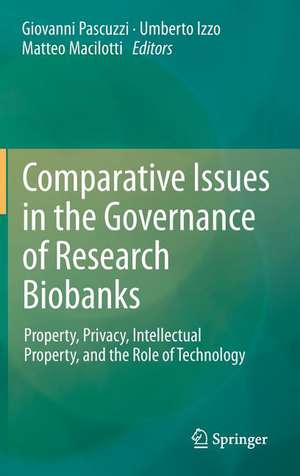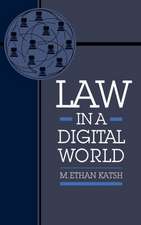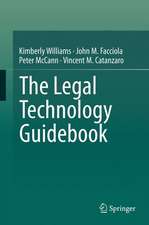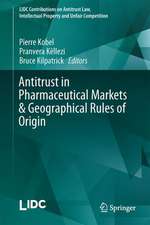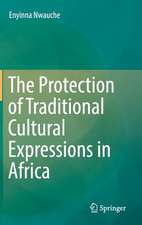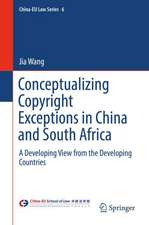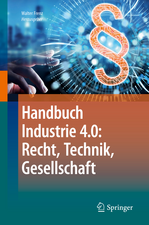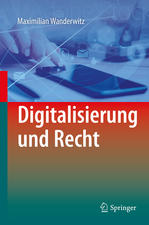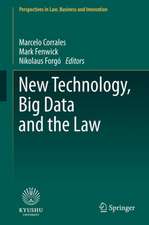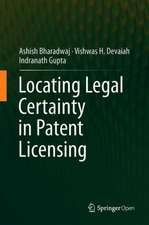Comparative Issues in the Governance of Research Biobanks: Property, Privacy, Intellectual Property, and the Role of Technology
Editat de Giovanni Pascuzzi, Umberto Izzo, Matteo Macilottien Limba Engleză Hardback – 7 feb 2013
| Toate formatele și edițiile | Preț | Express |
|---|---|---|
| Paperback (1) | 564.76 lei 38-44 zile | |
| Springer Berlin, Heidelberg – 7 mar 2015 | 564.76 lei 38-44 zile | |
| Hardback (1) | 649.22 lei 6-8 săpt. | |
| Springer Berlin, Heidelberg – 7 feb 2013 | 649.22 lei 6-8 săpt. |
Preț: 649.22 lei
Preț vechi: 763.78 lei
-15% Nou
Puncte Express: 974
Preț estimativ în valută:
124.22€ • 130.05$ • 102.79£
124.22€ • 130.05$ • 102.79£
Carte tipărită la comandă
Livrare economică 05-19 aprilie
Preluare comenzi: 021 569.72.76
Specificații
ISBN-13: 9783642331152
ISBN-10: 3642331157
Pagini: 400
Ilustrații: VIII, 339 p. 7 illus.
Dimensiuni: 155 x 235 x 28 mm
Greutate: 0.66 kg
Ediția:2013
Editura: Springer Berlin, Heidelberg
Colecția Springer
Locul publicării:Berlin, Heidelberg, Germany
ISBN-10: 3642331157
Pagini: 400
Ilustrații: VIII, 339 p. 7 illus.
Dimensiuni: 155 x 235 x 28 mm
Greutate: 0.66 kg
Ediția:2013
Editura: Springer Berlin, Heidelberg
Colecția Springer
Locul publicării:Berlin, Heidelberg, Germany
Public țintă
ResearchCuprins
From the contents: Property and Privacy in Biobanking.- Intellectual Property and Biobanks.- Biobanks: The Perspective of Biobanker's.
Textul de pe ultima copertă
In the last few years, the boom in biobanking has prompted a lively debate on a host of interrelated legal issues, such as the Gordian knot of the ownership of biological materials, as well as privacy concerns. The latter are due to the difficulty of accepting that biological samples must be completely anonymous without making it practically impossible to exploit their information potential. The issues also include the delicate role and the changing content of the donor’s “informed consent” as the main legal tool that may serve to link the privacy and property interests of donors with the research interests and the set of principles that should be at the core of the biobanking practice. Lastly, the IP issues and the patentability of biological samples as well as the protection of databases storing genetic information obtained from the samples are covered. Collecting eighteen essays written by eminent scholars from Italy, the US, the UK and Canada, this book provides new solutions to these problems. From a comparative viewpoint, it explores the extent to which digital technology may assist in tackling the numerous regulatory issues raised by the practice of biobanking for research purposes. These issues may be considered and analyzed under the traditional paradigms of Property, Privacy, Informed Consent and Intellectual Property.
Caracteristici
Includes supplementary material: sn.pub/extras
